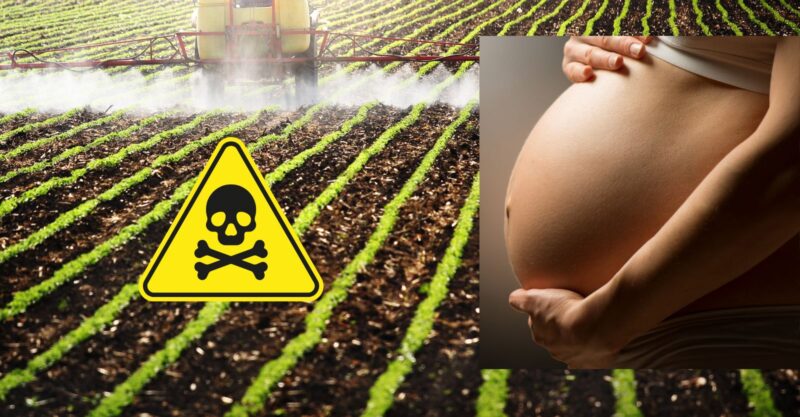Glyphosate Threatens Fertility — Even at “Safe” Levels
Glyphosate, the active ingredient in Roundup, is the most widely used herbicide in the world — and it’s showing up in our bodies at alarming levels. Despite being marketed as “safe,” emerging research reveals that even low-dose exposure to glyphosate-based herbicides can damage reproductive organs, disrupt hormones, and impair fertility — not only in those exposed, but also in future generations.
Studies show glyphosate causes hormone imbalances that resemble PCOS, a common cause of infertility. It alters levels of estrogen, progesterone, and testosterone in a way that prevents normal ovulation and affects the uterus’ ability to support pregnancy. Researchers have also observed physical damage in the ovaries, including changes to egg cells and ovarian tissue. In the uterus, glyphosate exposure can lead to abnormal cell growth and structural changes, increasing the risk of miscarriage, endometriosis, or even cancer.
Alarmingly, the effects don’t stop with one generation. When pregnant animals are exposed to glyphosate, their offspring — and even the next generation — show genetic and developmental changes in their reproductive organs, despite having no direct exposure themselves. This transgenerational impact could be contributing to declining fertility rates across the globe.
Men are not immune either. Glyphosate reduces testosterone levels by interfering with the function of Leydig cells in the testes. It also damages mitochondria and impairs the body’s ability to detoxify, contributing to overall hormonal and metabolic disruption. By mimicking glycine, an amino acid the body uses to build proteins, glyphosate corrupts normal cellular processes. It also wipes out beneficial gut bacteria, leading to inflammation and a weakened immune system.
You may not notice these changes right away. Many people live with hormonal imbalances, autoimmune conditions and fertility challenges without realizing a common environmental toxin could be playing a role.
What You Can Do:
-
Choose organic produce — If you can’t go fully organic, start by avoiding the most contaminated items on the Environmental Working Group’s Dirty Dozen list.
-
Avoid non-organic wheat and legumes — These are often sprayed with glyphosate right before harvest as a drying agent.
-
Cut seed oils from your diet — Replace soy, corn and canola oil with healthier fats like butter, ghee or tallow.
-
Filter your tap water — A reverse osmosis system can help remove pesticide residues and other contaminants.
-
Heal your gut — Rebuild your microbiome with beneficial bacteria like Akkermansia muciniphila and eat whole, clean foods to support recovery.
Glyphosate is not just a farming issue — it’s a public health crisis. Reducing exposure, especially for women of reproductive age, may help protect not only your health but the health of future generations.

Read original article by Dr. Joseph Mercola in CHD’s The Defender HERE.
Click on the image below to watch “Get the Toxins Out” with Moms Across America’s Zen Honeycutt on CHD.TV
**************************************************************************************************************


